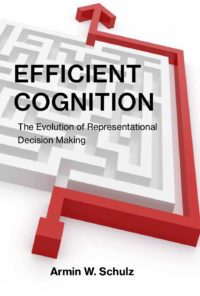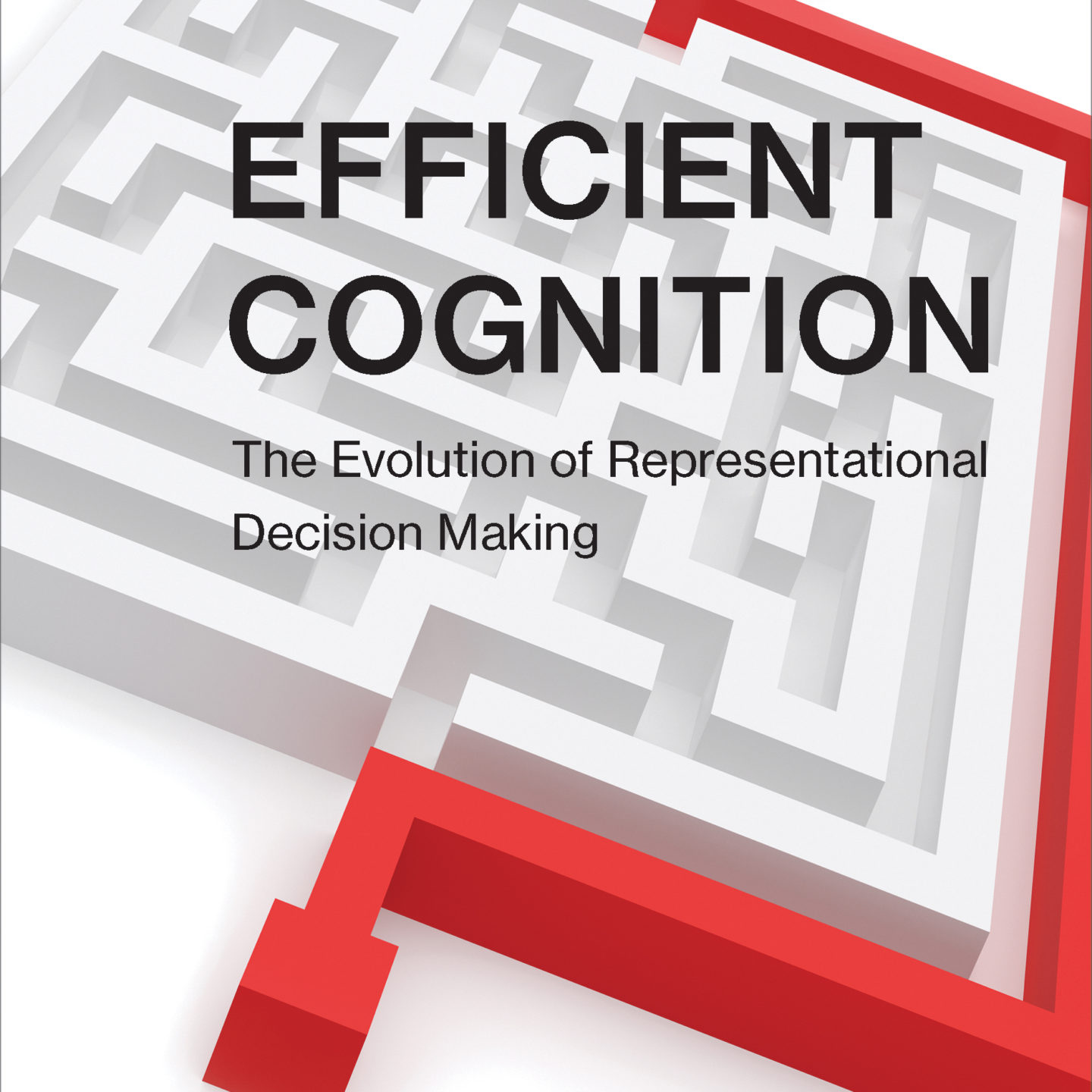I want to thank John Schwenkler for inviting me to blog about my new book, Efficient Cognition—The Evolution of Representational Decision Making. I am excited to be sharing with you all the reasons why I find the evolution of representational decision making such a fascinating research project. I also look forward to reading and responding to your comments.

Broadly speaking, organisms interact with their environment in two different ways. On the one hand, they may make their behavior dependent directly on their perceptual states: their perceptions of the environment simply trigger a behavioral response. For example, in cleaner ants of the species P. Barbatus, the smell of oleic acid in and of itself triggers cleaning behavior. I call this “reflexive decision making.” On the other hand, organisms may step back from their perceptions of the situation at hand, mentally process these perceptions further, and then make their behavior dependent on these processed mental states downstream from their perceptual states. For example, in humans, the perception of a job offer does not automatically trigger acceptance behavior—rather, the perception of the job offer is first integrated with other information to lead to a behavioral response. I call this way of making decisions “representational decision making.”
Understanding the evolutionary pressures on these two ways of making decisions is the goal of my book. More specifically, the book seeks to answer the question of why some organisms (including, but not limited to, humans) have evolved in such a way that they, at least at times, make decisions representationally. Given that reflexive decision making—the ancestral trait—is a powerful and widely instantiated way of making decisions, it is not obvious what biological advantages representational decision making yields to an organism. My book sets out an answer to this question.
Before looking at this answer in more detail—a task I take on in the remaining blog posts—it is useful to consider why answering this question is interesting in the first place. Why should we care about the evolution of representational decision making? In response, note first that answering this question is biologically important. It is generally of biological interest to consider the evolution of complex traits that are widely instantiated in the biological world. Second, answering this question has important implications for a number of other questions. Making this clearer will be the topic of a future post as well.
It is probably obvious that this project is a form of evolutionary psychology. This matters, as evolutionary psychology is often thought to be faced with a number of challenges. Getting my project off the ground, then, requires overcoming these challenges. On the flipside, though, to the extent that the project can be gotten off the ground, it can also be seen as an existence proof of a compelling form of evolutionary psychology. For this reason, the interest of the book goes beyond the evolution of representational decision making and extends to the plausibility of evolutionary psychology more generally.
It is probably also obvious that this project needs significant input from the empirical sciences. However, this does not mean that it is not also a philosophical project. In particular, it is a traditional preoccupation of philosophers to be the ones “connecting the dots” among different empirical findings: philosophers can bring together a number of different sciences to draw out the picture emerging from the work going on in these different sciences. Illustrating this with the example of the evolution of representational decision making is thus another aim of my book.
The book has three parts, and there will be a blog post associated with each of these parts. Tomorrow, the discussion will turn on foundational issues: the characterization of representational decision making and the defense of a plausible, moderate form of evolutionary psychology. On Wednesday, I will write about the core features of the account of the evolution of representational decision making defended in my book. Finally, on Thursday, I lay out some of the implications of this account for some open questions in philosophy, psychology, and economics. I look forward to giving you a glimpse of these (in my eyes at least) fascinating issues.


Looking forward to reading more about your work. I think this is an excellent topic and a great research program. However, even if we are fully paid up naturalists why should it be “probably obvious that this project is a form of evolutionary psychology”. Do you mean in the broadest sense? For example, might the capacity for truly representational decision making – the standing back of which you speak – depend upon the mastery of certain specialised, scaffolding cultural practices. Is that ruled out, shown to be empirically false, or is your notion of our environment of evolutionary adaptedness very permissive?
That’s exactly right: I intend to refer to a broad form of evolutionary psychology here. I also think that cultural learning (e.g.) can be an important part of representational decision making. The book lays this out in more detail, but we can revisit this over the next few days, as I sketch the account of the book. I look forward to discussing this with you!
Do you have a view of which species exhibit representational decision making?
I think that’s a complex empirical question. That said, I think there is good reason to think that the set of species here goes much beyond humans, and includes many different types of non-human (and even non-mammalian) animals as well.
Congrats on the book, Armin!
Assuming that perception involves representation, then both reflexive and representational decision making involve representation. It’s just that the latter involves more of it (downstream from perception). Correct? Does your book say anything about why some organisms have evolved to have non-perceptual representations, which, if I’m following you, are necessary for representational decision making? Or does your book take for granted that there are good reasons for organisms to evolve non-perceptual representations, and then ask why such organisms make decisions representationally (at least at times)?
I’m also looking forward to reading more about the project!
Hi Mike! As usual, that’s a very insightful comment. You are exactly right that, on some accounts of representation and perception, perceptual states are representational. You are also exactly right that, given this, my book tries to answer the question: why would organisms go beyond merely perceptual representations to also rely on more complex representations when making decisions? (I’ll write a bit more about this tomorrow, too.)